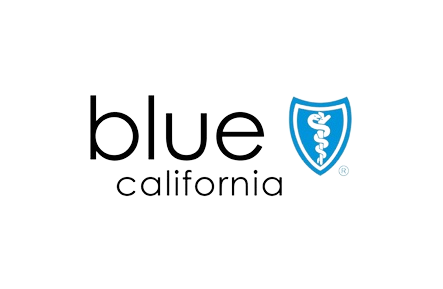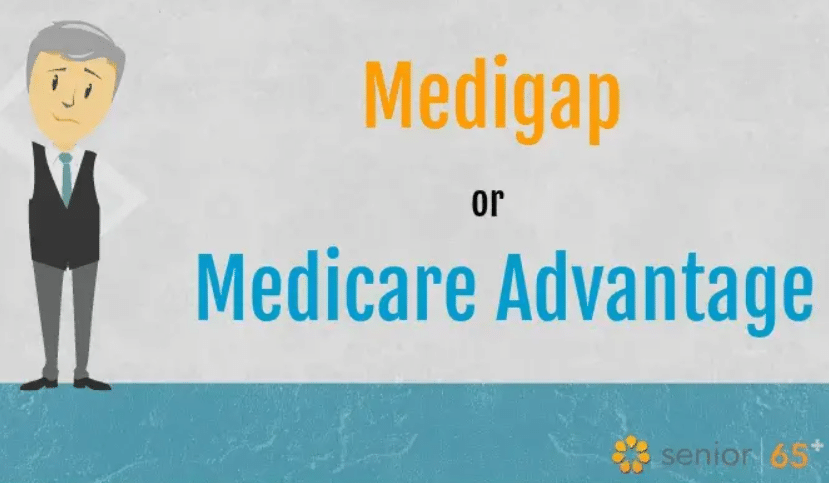How does senior dental insurance work? Dental coverage (or lack thereof) depends on which insurance you have. Let’s review the major options below:
Original Medicare Part A and B does not cover routine dental visits and procedures such as filling, tooth extractions or dentures. Medicare can cover some expenses for dentistry-related hospitalizations. Most individuals on Medicare select a separate dental plan to address their regular dental needs.
Medigap plans can cover your Original Medicare deductibles, copays, and coinsurance for rare dentistry-related hospitalization, but do not cover dental as part of their core coverage. To be clear, standard Medigap does not include traditional dental coverage of teeth cleaning, extractions, crowns etc.
When enrolling in Medigap, most insurance providers will offer to sell you a separate dental plan at the same time. You can select that dental coverage or purchase stand alone dental insurance plan from another insurance carrier. Remember there is no Medicare deadline when to enroll in dental. You can purchase separate dental at age 65 or 75 and there will be no penalty.
Currently, we only know of one Medigap plan in the country (Illinois) that offers Medigap with dental bundled in for one low cost. Click here to see the IL Medigap plan that includes dental, vision, and hearing.
Medicare Advantage (MA) can cover dental but since MA plans are not standardized, dental coverage and benefits vary from plan to plan. If you are considering a Medicare Advantage plan that does offer dental, make sure to check the dentist network, waiting periods, and the calendar year maximum payout (how much the MA plan will pay towards your dental in one year). That will help you know how robust the coverage is.
Stand Alone Dental
Stand-alone Dental insurance name is a good descriptor. They are separate dental plans that you can typically purchase regardless if you have Medicare or not. These plans cover a wide variety of dental services and there is no deadline on when you can enroll in coverage. Some insurance companies, however, will reduce waiting periods if you do not have a gap in coverage from your previous dental insurance so keep that in mind.
The level of coverage the insurance provider pays (100 percent, 80 percent, or 50 percent) will depend on the plan and the type of service provided. Below we have provided examples of how some stand-alone dental insurance providers break down coverage.
Preventive
- Exams
- Extras
- Teeth cleanings (usually 2 per year)
Basic
- Fillings
- Extractions
- Emergency treatment of dental pain
Major
- Inlays and onlays
- Crowns
- Pin retention in addition to restoration
- Sedative fillings
- Endodontics
- Prosthodontics
- Periodontics
Extra Coverage
- Dentures
- Implants
- Orthodontics
A typical plan might pay 100% for Preventive, 80% for Basic and 50% for Major services. They may also establish an set dollar amount for procedures that fall under “Extra Coverage.” Most plans also have a 6+ month waiting period or longer for Major services. Once again this is a general guide and does vary by insurance provider.
How much does senior dental cost?
Stand-alone dental plans are offered by private insurance companies and usually cost between $20 to $100+ a month.
How do I sign up for senior dental?
You can give us a call to discuss your dental options and you can often enroll over the phone. You can also enroll online
When can I sign up for a dental plan?
Unlike other coverage like Medigap or Part D, you can sign up for a stand-alone dental plan whenever you want. Medicare will not penalize you for enrolling late (or not enrolling) in dental.
That being said, many Medicare Supplement providers include a separate option to enroll in their dental plan at the same time you enroll in Medigap. Sometimes they will offer you a discount for enrolling in dental when you purchase Medigap. As mentioned, a few insurance providers may reduce your waiting periods if you can prove you have had no break in coverage since your previous dental plan.
Dental coverage usually starts the first of the following month you apply. Typically you do not have to be 65 in order to buy one. Most companies do not differentiate between senior and non-senior dental and charge males and females the same amount. Insurance providers usually accept all applicants for dental insurance regardless of pre-existing conditions.
What to consider when purchasing dental insurance:
First think about your past usage. Your dental history should help inform your dental insurance selection. If you currently have lots of dental issues, you are going to want to select a plan with a larger calendar year maximum payout. If you only go for two teeth cleaning each year, on the other hand, you can select a less expensive plan. Once you review your past dental history, you want to focus on the big three listed below:
Network
Is you dentist in the network? Unlike Medigap, senior dental plans have a defined network of dentists. Ask your current dentist for a list of which individual dental insurance plans they participate in. Some dentist work with group insurance but not individual plans -so make sure your dentist specifies the dental plans for individuals that they participate in.
Also all dental plans have doctor finders where you can look up to see who is in network. Sometime they are organized by dental facility so you can also check by your dentist office name.
Waiting Periods
As we reviewed above, many plans have waiting periods of six months or longer before they will cover certain procedures. Check on the plan’s waiting period if you have a certain service (like a crown) that you expect to address in the near future.
Calendar Year Maximum
As we have discussed, senior dental plans get to set the maximum amount THEY pay for your dental costs. They can range anywhere from $500 to $5000+. If you exceed their calendar year limit, you will be required to pay all additional fees beyond their maximum. If you know you will have major dental work in the next year or two, it may be wise to select a plan with a larger calendar year maximum.
Can I switch my dental plan?
You definitely can switch dental plans. You just have to apply for a new one and most plans will approve you regardless of your dental history. Still, please do not cancel your former plan until you have received confirmation that you are enrolled in the new one.
Is Senior Dental Worth it?
Yes. Usually Senior Dental plans can save you money on regular teeth cleanings and checkups over paying those fees directly to the dentist. Without insurance, dental exams with cleanings can cost 200+ a visit. If you have major upcoming dental needs, make sure you select a plan with a large enough calendar year maximum payout to cover them.
Bottomline: Because dental plans set calendar year maximum payouts and other limits, dental insurance will not protect your wealth and health like Medigap insurance does for medical insurance. That being said, if you enroll in a dental plan that covers your expected dental costs and has a fair monthly price, it can save you money.
Questions about dental: Call our Senior65.com team at 800-930-7956 to learn more.











